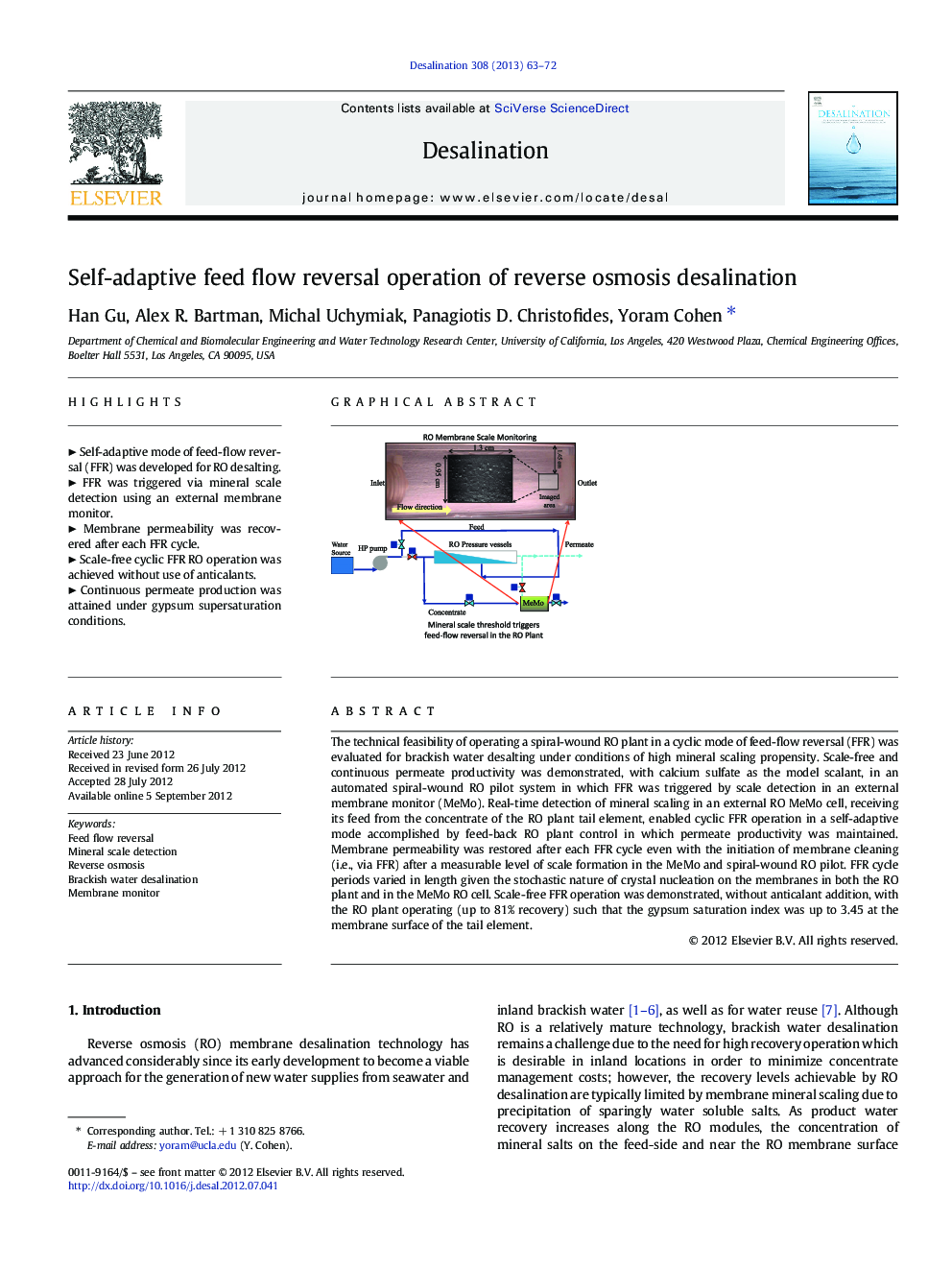| Article ID | Journal | Published Year | Pages | File Type |
|---|---|---|---|---|
| 624148 | Desalination | 2013 | 10 Pages |
The technical feasibility of operating a spiral-wound RO plant in a cyclic mode of feed-flow reversal (FFR) was evaluated for brackish water desalting under conditions of high mineral scaling propensity. Scale-free and continuous permeate productivity was demonstrated, with calcium sulfate as the model scalant, in an automated spiral-wound RO pilot system in which FFR was triggered by scale detection in an external membrane monitor (MeMo). Real-time detection of mineral scaling in an external RO MeMo cell, receiving its feed from the concentrate of the RO plant tail element, enabled cyclic FFR operation in a self-adaptive mode accomplished by feed-back RO plant control in which permeate productivity was maintained. Membrane permeability was restored after each FFR cycle even with the initiation of membrane cleaning (i.e., via FFR) after a measurable level of scale formation in the MeMo and spiral-wound RO pilot. FFR cycle periods varied in length given the stochastic nature of crystal nucleation on the membranes in both the RO plant and in the MeMo RO cell. Scale-free FFR operation was demonstrated, without anticalant addition, with the RO plant operating (up to 81% recovery) such that the gypsum saturation index was up to 3.45 at the membrane surface of the tail element.
Graphical abstractFigure optionsDownload full-size imageDownload as PowerPoint slideHighlights► Self-adaptive mode of feed-flow reversal (FFR) was developed for RO desalting. ► FFR was triggered via mineral scale detection using an external membrane monitor. ► Membrane permeability was recovered after each FFR cycle. ► Scale-free cyclic FFR RO operation was achieved without use of anticalants. ► Continuous permeate production was attained under gypsum supersaturation conditions.
